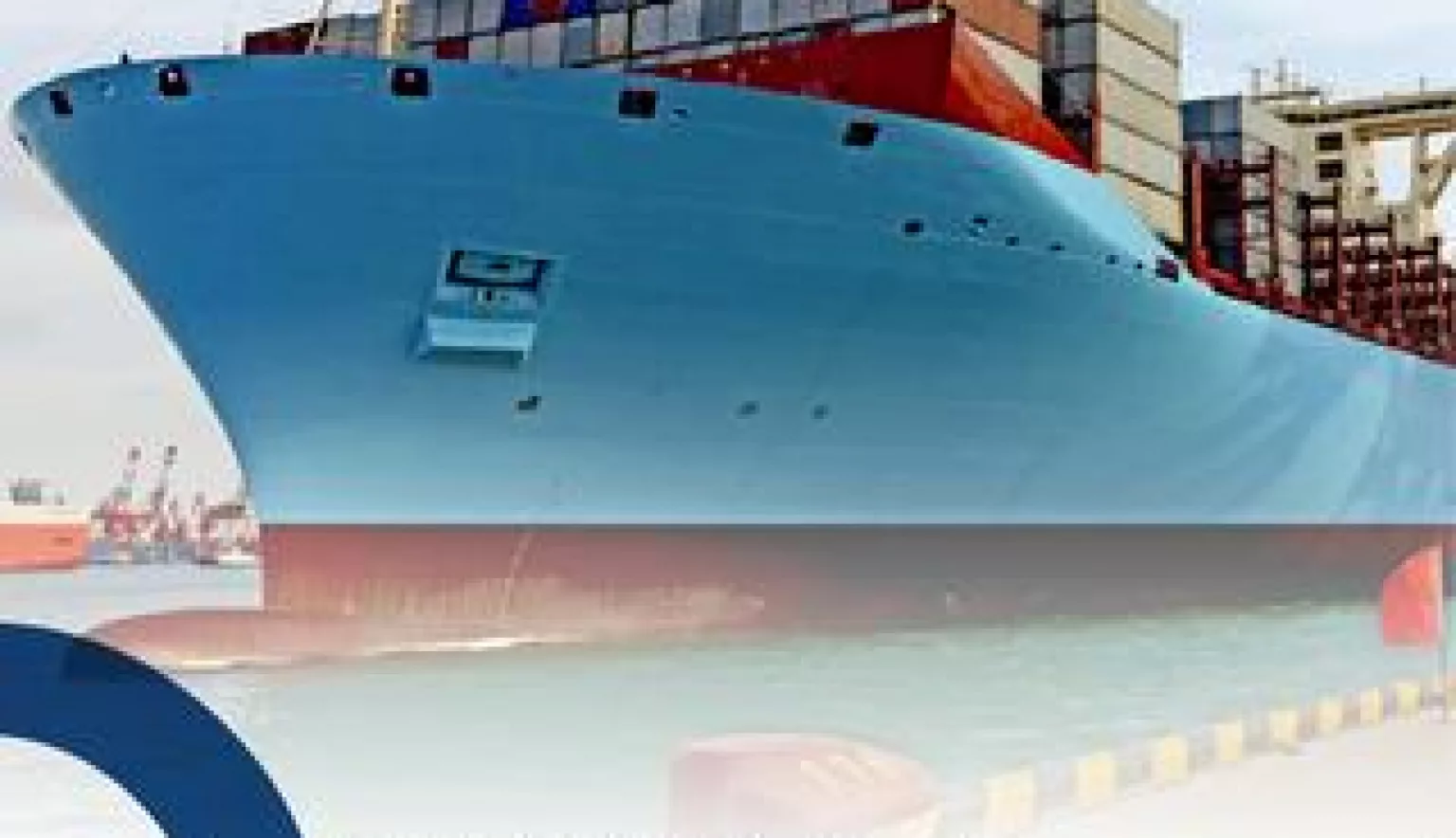Deloports have implemented an investment programme over the last 3-4 years, with a view to become the operator of the most modern and fastest growing dry cargo terminals in the Black Sea region.
THE BLACK SEA BASTION
Deloports is a holding company that owns and operates container, grain terminals and a bunkering service company, situated in the South East region of Novorossiysk, Russia. This Black Sea port is perfectly situated to offer a logistical haven for containerised import cargoes coming to main consumption centres in the European part of Russia, as well as for handling Russian exports, such as oil, grain, metals, timber products etc. Deloports was founded in 2012 by consolidating stevedoring assets of Delo group. Deloports actively invests in the development of terminals and storage infrastructure, equipment and human capital in order to improve the level of its services.
Andrei Bubnov, chief Financial Officer of DELOPORTS, has overseen the recent investments and terminal upgrades being undertaken by the company, and believes that it has put Deloports in a commanding position as the premier port operator on the Russian Black Sea coast: “we have implemented an investment programme over the last 3-4 years, with a view on capitalising on the increasing volumes of Russian grain exports and on containerised cargo shipments to and from Russia. This has already paid dividends for us in terms of modern capacities and turnover. We have placed a strong emphasis on utilising the space we have and creating an efficient operating area.”
Investing in your own infrastructure can make or break a company. Deloports is investing money in revamping existing port facilities by the waterfront with new technologically advanced equipment, and improving adjacent port infrastructure such as rail, auto, electricity and logistics. “The new investment initiative we have been rolling out enables us to really maximise the limited space we have to ensure we can handle the largest workload possible,” cites Bubnov.
OPERATIONAL CHALLENGES
Companies working in Russia are often presented with unique challenges. For instance, DELOPORTS is faced with the necessity to invest in adjacent port infrastructure, such as rail, whereby elsewhere in the world, it would have been provided for by the state or relevant port authorities. DELOPORTS’ assets are also subject to heavy regulation and other inefficiencies when it comes to interaction with state institutions (border control, customs, port authorities etc). “We have learned to navigate in these conditions and consider them a part of our working environment. We are working closely with authorities to remove these inefficiencies, a process where we create value not just for ourselves, but for our industry as a whole,” Mr. Bubnov highlights.
Mr. Bubnov has overseen the sale of a 25% stake plus one share in the KSK grain terminal to US Company Cargill. As a result of this deal, Cargill received one of the five seats on the board of directors of the company. KSK is one of the largest grain terminals on the Russian Black Sea coast. It has the capacity to handle 3.5 million tonnes per year. KSK’s grain handling volume has increased at a CAGR of 36% between 2010-2013 to reach 1.3 million tonnes. In 2014 alone, the first period of year-round operations – post the grain terminal reconstruction – the terminal already handled 1.8 million with excellent prospects before the year-end, given the beginning of the harvest season. “Our transaction with Cargill was very important for us in that it was a stamp of quality for the recently completed project and a guarantee of future supply for the terminal. It was also important for the battered Russian investment climate since it demonstrated that Russian greenfield projects are able to capture attention of internationally renowned companies, pass a thorough due diligence process, present a strong business model and a sound corporate governance case,” remarks Bubnov.
CURRENT GROWTH AND FUTURE PLANS
One of the key reasons for strong growth so far has been focused and timely investments based on a general territory development plan that was developed in 2010-11. The Group also has a balanced model – mostly imports-focused NUTEP , which represents an equal proportion of DELOPORTS’ operations to export focused KSK. Dollar-denominated tariffs make the Group resilient to rouble fluctuations. In addition, DELOPORTS extracts synergies by way of offering bunkering, agency and freight forwarding services at its terminals.
Since inception of DELOPORTS, the company has enjoyed uninterrupted double digit growth rates in throughput and key financial indicators. 2014 will continue the trend thanks to the improvements and investment having been made in the expansion of the terminals. In 2015 however, Mr Bubnov believes that growth will be slower, as the terminals reach their project capacity, necessitating further expansion projects and investments to continue the upward trend.
In the first 6 months of 2014, DELOPORTS container terminal NUTEP handled 1,396 thousand tonnes of containerised cargo, which is 6% ahead of 2013’s half-yearly report. Grain handling at KSK grain terminal from January to June 2014 increased 10 times compared to the same period in 2013, with grain throughput reaching 1,063 thousand tonnes. The Ro-Ro segment demonstrated a 34% decline in terms of cargo turnover, but a 46% increase of units handled, due to growth of less heavy but more marginal auto car trans-shipments. In the first 6 months of 2014, the port terminals handled 282 thousand tonnes of Ro- Ro cargo; or 23 thousand units.
PLANNING FOR SUCCESS
With reports showing double-digit growth for throughput by the Group terminals for the last 3 years, DELOPORTS is in a commanding position to continue registering strong growth in the foreseeable future, providing that the investment being made into terminal expansion and the successful launch of Berth 38 sees a good ROI. Bubnov is a firm believer that early planning and uptake of the projects has been the key reason for DELOPORTS’ success: “The primary key to our success has been a good strategy backed by our shareholders, strong programme documents which, at inception, were developed with a comprehensive understanding of the complex development of the area. By utilising the careful planning from the beginning, we have been able to allocate our resources carefully, ensuring that at all times they were both commercially and technically viable,” concludes Bubnov.



















